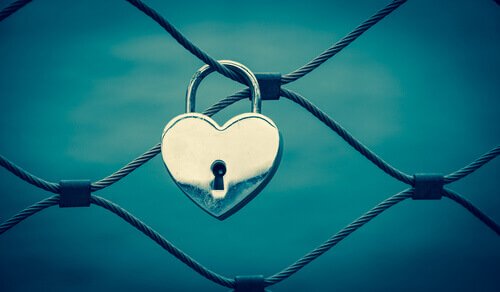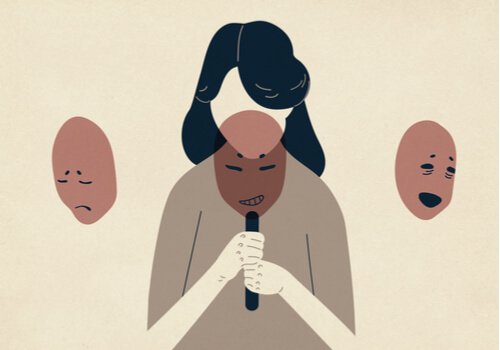(Exploring your Mind) It may be hard to face whatever’s happening in your life, either because you’re afraid, don’t know how to act, or because you’re trying to avoid suffering again. In cases like this, perhaps you’re “wearing an emotional armor” in order to protect yourself.
Related Creating a Family Culture Around Emotional Self-Regulation
by Staff Writer, April 6th, 2019
The thing is that, by doing this, you’re hiding your essence and disguising yourself. You may even get too attached to the fake image you’re portraying.
Sometimes you’re so afraid of showing who you really are that you put on a big armor to protect yourself and avoid suffering.
When you put on an emotional armor, you keep yourself from living authentic experiences. It’s as if you were putting a huge barrier in front of you that, besides limiting you, prevents others from knowing your true self. Thus, this shield you’re using as protection interferes with your ability to open up to the world.
The thicker the armor, the farther you get from everyone else and even from yourself.

Emotional armor as a defense mechanism
You may be wearing emotional armor to face reality without suffering too much. This way, you avoid feeling bad and you protect yourself from what you consider to be severe threats, such as:
- Relationships with others. Maybe you’re afraid that people are judging you or thinking bad things about you or maybe you feel like your behavior isn’t appropriate. As a consequence, you hide your essence while portraying an image that you think other people will like or expect from you.
- The future. This is when you get ahead of yourself and think about the one thousand possible scenarios that could happen to keep your sense of control. Thus, you believe that you’re protected because you’ve already thought of everything. The problem is that, as much as you think about the future, you really have no control over anything.
- Yourself. Since you have thoughts or even emotions that you don’t think are acceptable, you put on an emotional armor to protect yourself from them.
Buy Book Awakened Empath: The Ultimate Guide to Emotional, Psychological and Spiritual Healing
In addition, you’re not only protecting yourself from possible threats, but you’re also making up different disguises, different ways of acting, or in simpler words: you’re using defense mechanisms. Here are some of them:
- Isolation. This emotional armor pushes you to get away from your thoughts and feelings. It forces you to disconnect in order to protect yourself, to withstand what’s happening without suffering. The problem is that this mechanism makes you someone you’re not.
- Repression. This way of acting consists of eliminating the things in life that are painful to you by making them wander unconsciously in your mind. You think that if you erase those feelings, they’ll never be able to hurt you. But what happens instead is that you manifest them in other ways.
- Projection. It’s one of the most commonly used defense mechanisms and the one that you could be mostly unaware of. Projecting is blaming your thoughts and feelings on other people.
- Denial. Blocking out what you think or feel because whatever’s happening in your life is very hard to accept.
- Displacement. This “disguise” redirects your thoughts and feelings into other people, situations, or things.
- Regression. Sometimes, when it’s hard to face your issues, you might behave in a way that isn’t appropriate for your age. This is an immature way of accepting what’s happening to you.

Getting rid of the emotional armor
The first step to getting rid of the emotional armor is connecting with yourself. Once you know who you are and accept it, you’ll show your authentic self to the world.
Once you’ve established that deep connection with yourself, the next step is starting to be conscious of the moments in which you’re using a defense mechanism. In which situations are you using them? Are you applying those mechanisms with everyone or just certain people? When and with whom are you being authentic? These questions may help you become more mindful.
Working on yourself
On the other hand, it’s also important to work on other aspects of yourself. For example:
- Love yourself. When you do, the fear of being who you are simply disappears and you start to value yourself.
- Stay close to those who love you the most. It’s impossible to be completely fearless, so when you’re feeling a bit insecure, try to talk about it with the people who love you. They can really support you.
- Stay away from those who don’t accept you for who you are. Identify the people you can actually connect with to establish relationships with them and stay away from those who don’t like you.
- Say goodbye to prejudices. If you leave your prejudices behind, it’ll be easier to accept and know others. This will also help you show your true self.
- Don’t make assumptions. Assumptions aren’t facts, but hypotheses instead. Trying to guess what will happen or how people will act will only overwhelm you.
Being aware of these aspects will make it easier for you to get rid of your emotional armor and really start being you.
Buy Book I Am Your Mirror: Mirror Neurons and Empathy
Stillness in the Storm Editor: Why did we post this?
Psychology is the study of the nature of mind. Philosophy is the use of that mind in life. Both are critically important to gain an understanding of as they are aspects of the self. All you do and experience will pass through these gateways of being. The preceding information provides an overview of this self-knowledge, offering points to consider that people often don’t take the time to contemplate. With the choice to gain self-awareness, one can begin to see how their being works. With the wisdom of self-awareness, one has the tools to master their being and life in general, bringing order to chaos through navigating the challenges with the capacity for right action.
– Justin
Not sure how to make sense of this? Want to learn how to discern like a pro? Read this essential guide to discernment, analysis of claims, and understanding the truth in a world of deception: 4 Key Steps of Discernment – Advanced Truth-Seeking Tools.
Stillness in the Storm Editor’s note: Did you find a spelling error or grammar mistake? Send an email to [email protected], with the error and suggested correction, along with the headline and url. Do you think this article needs an update? Or do you just have some feedback? Send us an email at [email protected]. Thank you for reading.
Source:
https://exploringyourmind.com/emotional-armor-double-edged-sword/

Leave a Reply